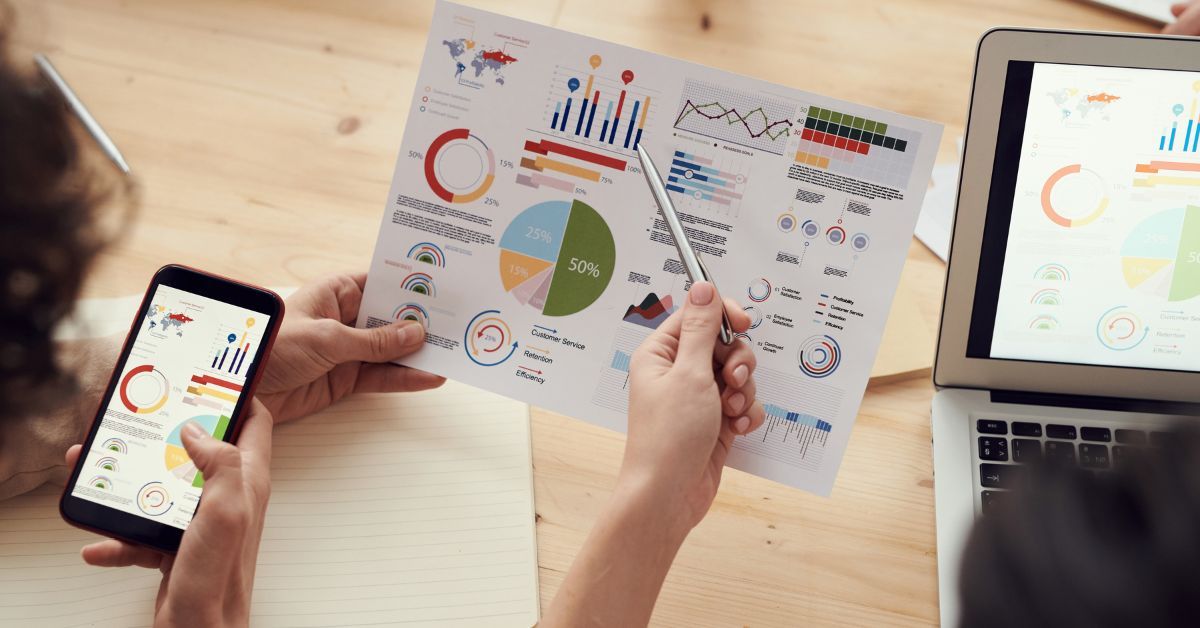How to Become a Data Scientist in 2022: The Ultimate Guide

- What is a Data Scientist?
- How to Become a Data Scientist?
- Important Data Science Skills
- How to build a portfolio to showcase your data science skills
- Technical skills required for a data scientist
- Non-technical skills required for a data scientist
- Careers in Data Science
- Ready to enter the world of data science?
Data science has become an integral part of every company, especially those who understand the value of data and what can be done with that information. The primary role of a data scientist is to extract actionable insights from complex data to inform your business decisions. If you are wondering how to become a data scientist, this career guide can help you take the first steps toward a lucrative career in data science. This blog provides an in-depth overview of the data skills you must learn, the best data science online courses, career paths in data science, how to build a portfolio, and more.
What is a Data Scientist?
Data is driving the future of business. Leaders who understand the importance of data and technology already have an advantage over their competitors. Every article and webinar on business confirms that analytics is critical for tomorrow’s success across industries. By leveraging data, many businesses have been able to move with greater agility. Others are behind the curve because their business cases are not strongly enabled by data-driven decision-making. Individuals who specialize in gathering and understanding such data are known as data scientists. It is one of the world’s most in-demand careers in 2022.
ALSO READ: What is data science and why is it in-demand?
Professionals around the world are developing data fluency and understanding how key technologies like Artificial Intelligence (AI) and Machine Learning (ML) intersect with data science. While having coding knowledge is advantageous, it is not mandatory in most cases. Aspiring individuals willing to enter this field have started signing up for courses that provide hands-on activities, capstone projects, live sessions, and case studies to help them discover how data-driven decision-making can enable businesses to become stronger and move with better agility.
How to Become a Data Scientist?
According to Forbes, data-driven organizations are now 23x more likely to acquire customers, 6x as likely to retain customers, and 19x more likely to be profitable. The demand for data scientists is only increasing and the field is expected to grow to $178 billion by 2025.
How to become a data scientist in 11 easy steps:
- Read up and understand the field well before diving in
- Slowly developed and hone the right data science skills
- Learn the fundamentals first
- Practice key programming languages
- Gather, understand, and visualize data using small case studies available on the internet
- Build a portfolio or website to showcase your data science skills
- Set up an online profile and update your LinkedIn too
- Closely follow the data science news, updates, and happenings to stay abreast
- Sign up for a program (online or offline) that best suits your needs
- Build a network online and apply to relevant data scientist jobs in a location of your preference
- Nail the data scientist interview
Important Data Science Skills
Why is this field in demand? How is data being used by companies? Businesses across the globe are using data analytics to improve their efficiency, provide better customer service, identify risks, and find new growth opportunities. This is common across all sectors. The world’s best universities are offering online courses that are designed for business professionals who recognize this growing trend. Aspirants want to leverage data and analytics techniques with the help of the latest technology to guide their company’s strategy in the short and long term. The best part of learning or mastering data science is that coding is only a good-to-have.
A data scientist salary comparison shows that an entry-level data scientist (with less than a year’s experience) starts at US $85,096 annually. With more experience, salaries can shoot up to US $135,961. Salary can be impacted by work experience, location, age, company, and most importantly, skills.
What skills must a data scientist have?
- Data analysis and modeling
- Problem-solving
- Intellectual curiosity
- Critical thinking
- Math and statistics
- Basic knowledge of coding: Java/ Python is an added advantage
- Market understanding
- Business acumen
- Communication and collaboration
- Visualization and presentation skills
ALSO READ: How to Develop a Learning Mindset and Make It a Part of Your Growth
How to build a portfolio to showcase your data science skills
Most often portfolios are set up by individuals who are looking to get a job in the world of data science. Especially those who do not have a lot of work experience in this domain. However, a portfolio is also good for anyone interested in the field and looking to learn. If you are a fresher or someone switching career paths, and wondering how to become a data scientist, or how to get started, then this is a good first step. A portfolio is a good testament to your knowledge, skills, dedication, and creativity.
Apart from setting up a blog or a simple website, here are a few platforms to build your online data science portfolio:
It is a world-renowned collaborative platform where people share and collaborate on projects of all kinds. Works on more projects to enhance your online profile.
A flexible interface that allows learners to configure and arrange workflows. Especially useful for those interested in data science, ML, AI, scientific computing, and computational journalism.
Set up your profile with a bio, profile picture, and other information before working on projects. This will help build a strong network with other data scientists. You can then share a snippet of your latest code with a small team or the public in general.
It is a new tool in the market and is fast-growing. It allows users to share their GitHub repository and create data science projects with the ability to visualize ML and data pipelines.
Participate in competitions, and share your datasets, notebooks, and join discussion boards on Kaggle. Using web scraping users can publish a new dataset on the platform.
Technical skills required for a data scientist
Learning new technologies, programming languages, and tools enable data science professionals to stay relevant in the real world, equipping them with practical knowledge and hands-on training.
- Programming Languages: R Programming, Structured Query Language (SQL), Python, Java, C, and C++
- Platforms like Hadoop, Apache Spark
- Data Visualization like Matplotlib, Tableau
- ML and AI
- Neural networks
- Reinforcement learning
- Natural Language Processing (NLP)
- Recommendation engines
Non-technical skills required for a data scientist
- Analytical skills
- Team participation and management
- Collaboration
- Communication skills
- Storytelling and visualization
Careers in Data Science

In a world that is governed by Big Data, there is a growing need for data scientists and analysts to help navigate a disruptive marketplace. As this phenomenon grows globally, individuals with the above hard and soft skills are entering various kinds of roles within the realms of data science. C-Suite leaders turn to data scientists to connect the dots across terabytes of data to offer trends, predictions, and insights to ensure competitive advantage in the cut-throat corporate set up.
Here are a few career paths within data science:
- Data Architect and Administrators
- Data Engineer
- Data Analyst
- Data Scientist
- Machine Learning Engineer
- Statisticians and Mathematicians
- Business IT Analyst
- Marketing Analyst
- Clinical Data Managers
ALSO READ: Exploring Careers in Data Science One Byte at a Time
Ready to enter the world of data science?
Emeritus has partnered with the world’s best universities to offer online courses in data science. Build your analytics acumen by learning from the best. Every course is a perfect marriage of theory and practicals to better equip you for a rapidly evolving, data-centric world. Explore all our data science courses today and join the data revolution.
Write to us at content@emeritus.org





